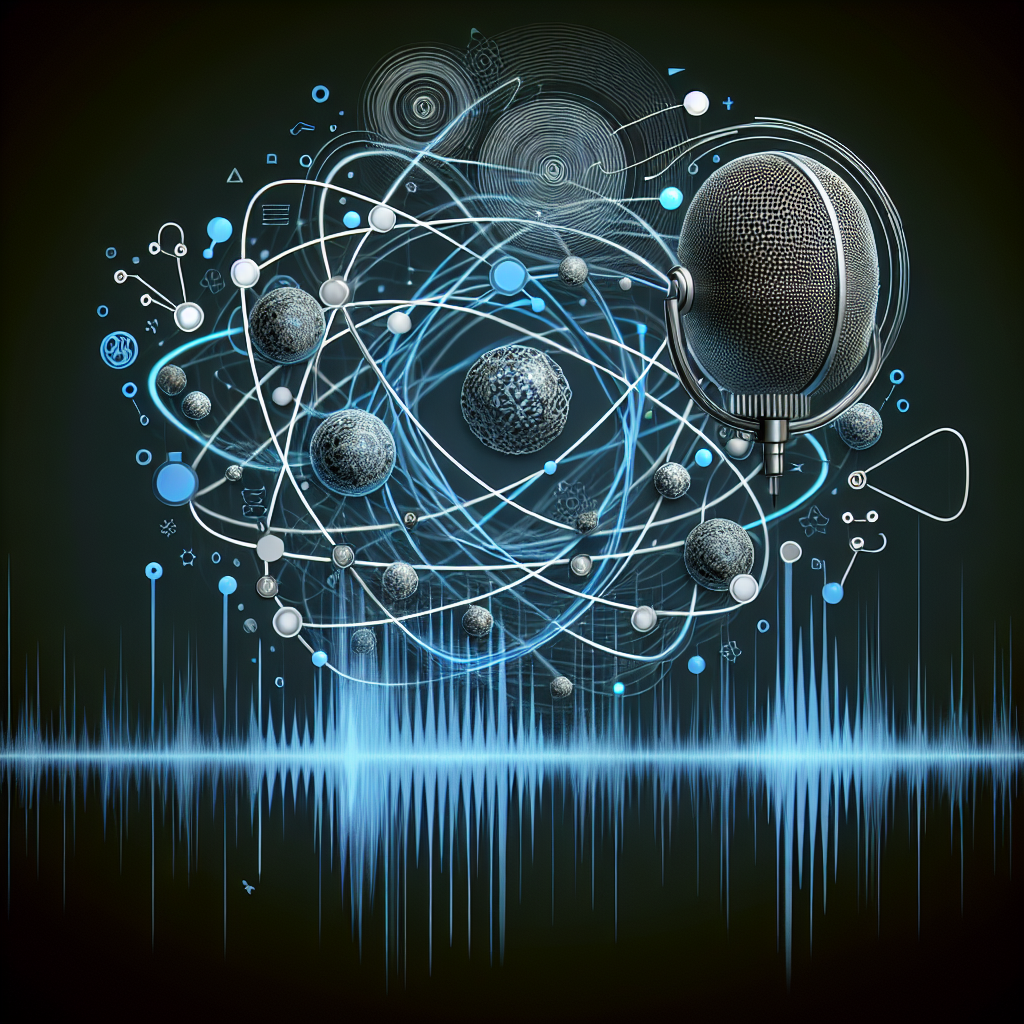The Role of AI Platforms in Speech Recognition
Speech recognition technology has made significant advancements in recent years, thanks to the development of artificial intelligence (AI) platforms. AI platforms have played a crucial role in improving the accuracy and efficiency of speech recognition systems, making them more reliable and user-friendly. In this article, we will explore the role of AI platforms in speech recognition and how they are shaping the future of communication.
What is Speech Recognition?
Speech recognition, also known as Automatic Speech Recognition (ASR), is the process of converting spoken language into text. This technology allows users to interact with computers, smartphones, and other devices using their voice instead of traditional input methods like typing. Speech recognition has a wide range of applications, from virtual assistants like Siri and Alexa to dictation software and hands-free control in vehicles.
How Does Speech Recognition Work?
Speech recognition systems use a combination of algorithms and machine learning models to analyze and interpret spoken language. When a user speaks into a device, the system captures the audio signal and processes it to identify individual sounds and words. The system then matches these sounds and words to a database of language models to generate a text output.
The accuracy of speech recognition systems depends on several factors, including the quality of the audio input, the complexity of the language being spoken, and the performance of the algorithms and models used. AI platforms play a crucial role in improving the accuracy and performance of speech recognition systems by providing advanced tools and techniques for processing and analyzing speech data.
The Role of AI Platforms in Speech Recognition
AI platforms have revolutionized the field of speech recognition by enabling developers to build more sophisticated and accurate systems. These platforms leverage the power of machine learning, natural language processing, and deep learning to enhance the performance of speech recognition algorithms. Here are some key ways in which AI platforms are shaping the future of speech recognition:
1. Advanced Algorithms: AI platforms provide access to state-of-the-art algorithms for speech recognition, such as deep neural networks and recurrent neural networks. These algorithms are capable of learning complex patterns in speech data and can adapt to different accents, languages, and speaking styles. By integrating these advanced algorithms into their systems, developers can improve the accuracy and reliability of their speech recognition technology.
2. Data Processing: AI platforms offer tools and techniques for processing and analyzing large volumes of speech data. This includes tasks such as noise reduction, speech segmentation, and feature extraction. By optimizing the data processing pipeline, developers can improve the quality of the input data and enhance the performance of their speech recognition systems.
3. Language Modeling: AI platforms enable developers to create custom language models for speech recognition. These models capture the statistical patterns and structures of a specific language or domain, allowing the system to better understand and interpret spoken language. By fine-tuning the language model based on user feedback and data, developers can enhance the accuracy and performance of their speech recognition technology.
4. Real-time Processing: AI platforms provide tools for real-time processing of speech data, allowing developers to build interactive and responsive speech recognition systems. These tools enable the system to process incoming audio signals in real-time, making it suitable for applications like voice-controlled devices, live transcription, and voice commands.
5. Adaptation and Personalization: AI platforms support techniques for adapting and personalizing speech recognition systems to individual users. By collecting and analyzing user data, developers can tailor the system to the user’s voice, accent, and language preferences. This personalization improves the accuracy and usability of the speech recognition technology, making it more intuitive and user-friendly.
Frequently Asked Questions (FAQs)
Q: How accurate are speech recognition systems powered by AI platforms?
A: The accuracy of speech recognition systems varies depending on the quality of the input data, the complexity of the language being spoken, and the performance of the algorithms and models used. With the advancements in AI platforms, speech recognition systems can achieve high levels of accuracy, approaching human-level performance in some cases.
Q: Can speech recognition systems understand different accents and languages?
A: Yes, speech recognition systems powered by AI platforms can adapt to different accents, languages, and speaking styles. By training the system on diverse data sets and language models, developers can improve the system’s ability to understand and interpret a wide range of accents and languages.
Q: What are some common applications of speech recognition technology?
A: Speech recognition technology has a wide range of applications, including virtual assistants like Siri and Alexa, dictation software, voice-controlled devices, and hands-free control in vehicles. It is also used in customer service, healthcare, education, and accessibility tools for people with disabilities.
Q: How can AI platforms improve the performance of speech recognition systems?
A: AI platforms provide developers with advanced tools and techniques for processing and analyzing speech data, creating custom language models, and adapting and personalizing the system to individual users. By leveraging the power of machine learning and deep learning, developers can enhance the accuracy, efficiency, and usability of speech recognition technology.
In conclusion, AI platforms are playing a crucial role in advancing speech recognition technology and shaping the future of communication. By providing developers with advanced tools and techniques, these platforms are enabling the development of more accurate, efficient, and user-friendly speech recognition systems. As AI continues to evolve, we can expect further improvements in speech recognition technology, making it an essential tool for enhancing human-computer interaction and enabling new applications and services.

